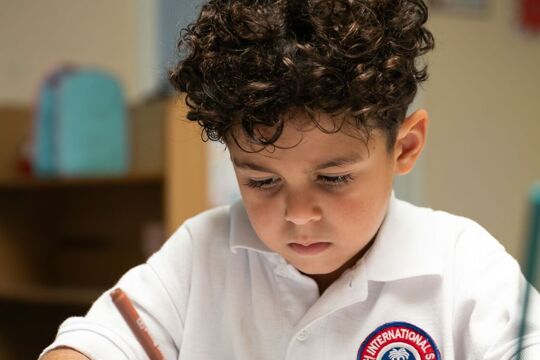International Primary Curriculum (IPC)
Our International Primary Curriculum (IPC) supports the holistic development of learners by providing engaging, relevant, and academically rigorous learning experiences. From the early years onward, we foster curiosity and a love of learning through a carefully designed approach.
In the Early Years, we broadly follow the Early Years Foundation Stage (EYFS) framework, focusing on developing key areas such as communication and language, personal, social and emotional development, and physical development, alongside early literacy and numeracy skills.
From Years 1 to 6, children explore 32 thematic units that spark their curiosity and help them understand the world through a wide range of subjects, including English, science, geography, history, music, computing (ICT), physical education, art, design, technology and innovation. In addition, we offer language learning and our bespoke subject, ‘Learning to Live, Learn and Lead’, which nurtures social awareness, leadership, and personal growth.
Through this comprehensive and integrated curriculum, our learners are equipped to become globally competent, socially conscious, and motivated individuals who make positive contributions to the world around them.
The most important aspects of our curriculum are:
Rigorous learning:
we pay attention to essential and transformational knowledge, to the development of key skills, and to the slow, steady progress towards deep understanding across a broad range of subjects.
High levels of children’s engagement:
we make sure that this rigorous learning can win the battle against superficially more exciting out-of-school activities so that:
- Children enjoy it and stick to it
- and come to like learning enough to want to continue throughout their lives.
In addition, we incorporate easy, accessible opportunities for parents to get involved to encourage and support their children.
International, global and intercultural awareness:
so many of our problems at local and global level are caused by different groups not knowing or respecting each other. So many of the key problems we face today will only be solved through local and global cooperation. So many of the opportunities open to our current generation of children will be in countries and cultures different from the one in which they are growing up.
The development of personal dispositions:
we create opportunities for children to develop qualities that will help them on their journey through life as individuals, citizens and partners. We call these our ‘learning muscles’ and they centre around our four Rs:
- Resourcefulness
- Resilience
- Reciprocity
- Reflectiveness




